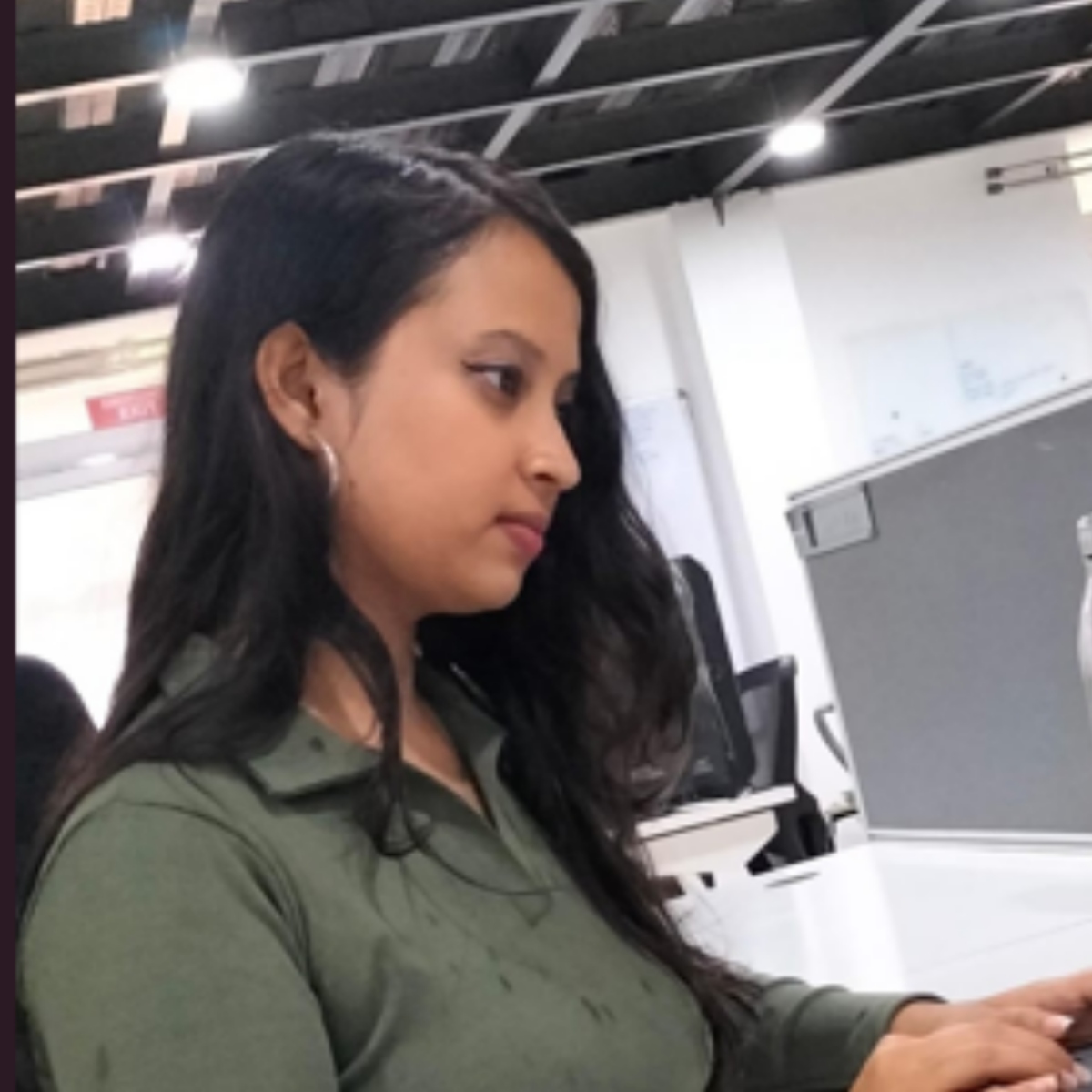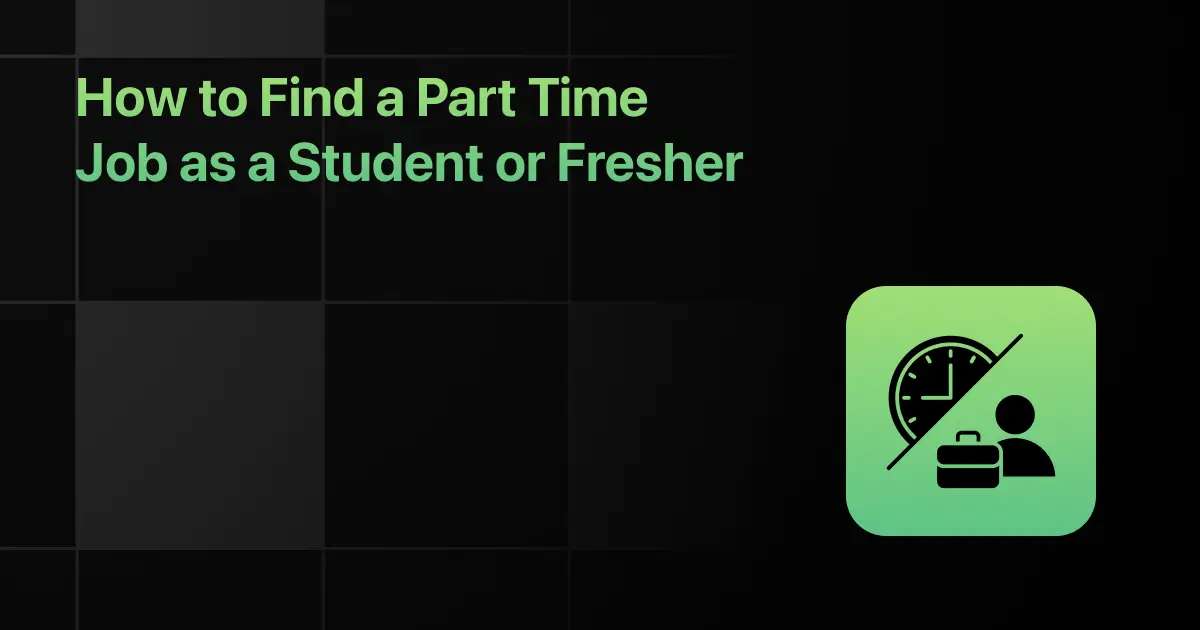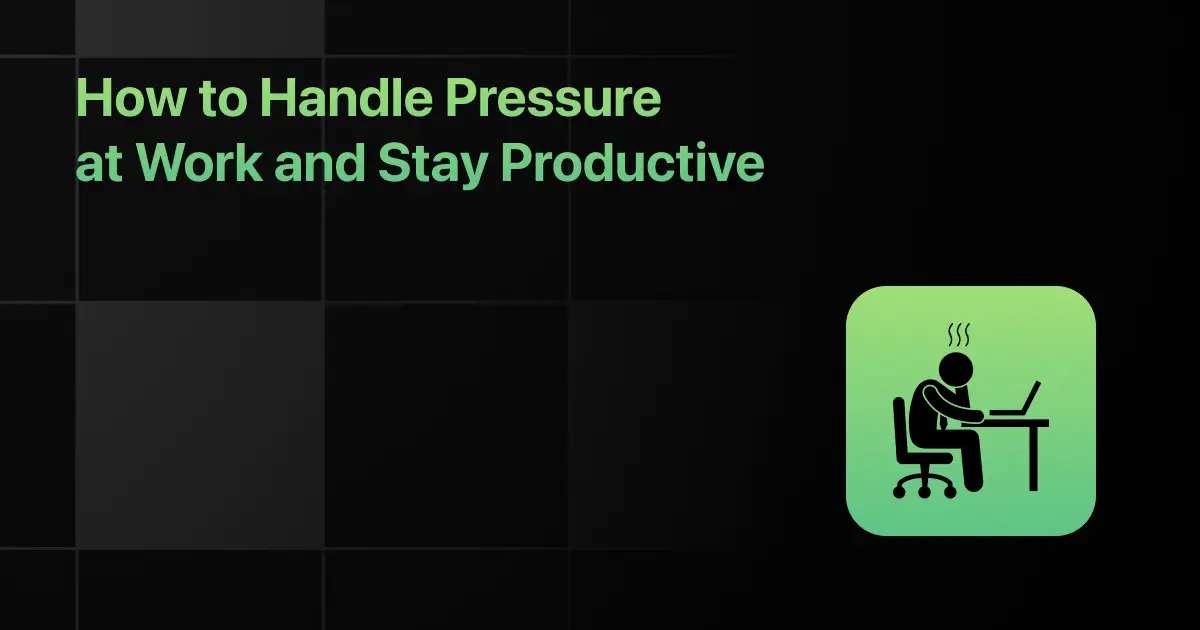How to Prepare for Job Interviews as a Fresher – 2025 Guide
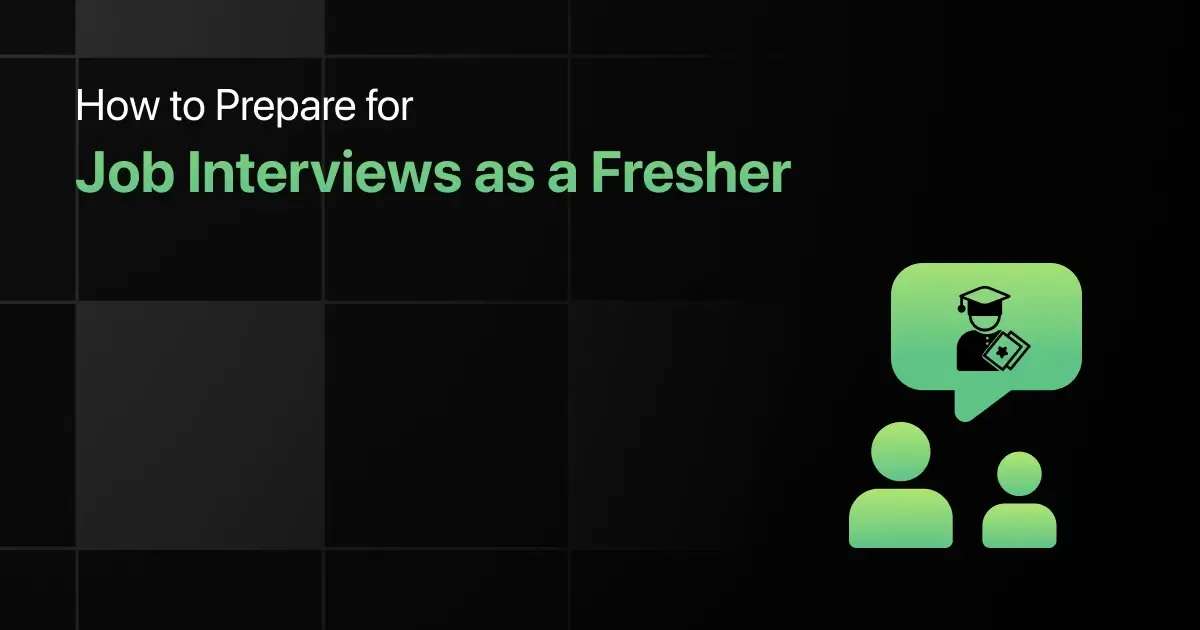
Snippet: Interview preparation for freshers is the process of preparing yourself for your first job interviews. It includes polishing your resume, understanding the company, practicing technical and HR questions, developing soft skills, and staying strong to make an impactful impression.
Hey, you. Yes, fresh‑out‑of‑college you. You’ve got your first interview coming up, and maybe your stomach is doing flip‑flops. Totally normal. What you need right now is not another perfect “how to” list, but the real low‑down on interview preparation for freshers, the stuff that actually works when you’re entering the interviews clueless.
Because you may not have 10 years of experience, you might not know all the buzzwords, and you may feel like everyone else has it together. But your energy, your willingness to learn, your story, that’s gold. In this guide, we’ll break down what interviewers are really looking for, show you a step‑by‑step prep plan, list common questions with smart ways to answer, and drop tips so you walk in ready (not panicked).
No fluff. Just you, practical strategies, and the inside scoop on how to make your first interview actually work for you. By the end, you’ll know how to prepare for job interviews as a fresher, present yourself, and leave the room feeling like you owned it.
What Interviewers Look for in Freshers?
Interviewers are looking for clues: who you are, how you think, and whether you’ll actually survive (and thrive) in the role. When you’re a fresher, they don’t expect you to have everything figured out. What they do expect is:
- Curiosity over credentials: They want someone who asks questions and shows they’re eager to learn.
- Clear thinking: Even if you stumble on a technical question, can you explain your logic?
- Honesty: Faking confidence is obvious. It’s better to admit when you don’t know something and show a willingness to learn.
- Basic communication: Can you express yourself without mumbling or overcomplicating things?
Interview preparation for freshers is about understanding what the interviewer truly cares about and showing that you’re ready to grow.
Understand the Interview Process for Freshers
Here’s what nobody tells you about ‘How to prepare for job interviews as a fresher’: it’s a multi-stage reality check.
- Resume Shortlisting: If your resume is messy or generic, you’re out before you even start. Start having your best resume with the best resume-making guide.
- Aptitude / Online Test: They test logic, math, and your ability to handle pressure. If you’re looking for the answer, here’s the guide for ‘How to prepare for Quantitative aptitude tests?’
- Technical Round(s): This is where they dig into your projects, coding skills, or domain knowledge. Technical interview questions for freshers will help you with.
- HR / Behavioral Round: It’s casual but important. Recruiters look for confidence, soft skills, and attitude.
- Follow-Up & Offer: Ghosting is common; stay patient, professional, and use the time to improve your LinkedIn visibility.
How to Prepare for Job Interviews as a Fresher? (Step-by-Step Guide)
First interviews can be scary and you may struggle to find answers for ‘How to prepare for job interviews as a fresher’, but with the right prep, you can walk in calm and ready to show your best self. Here’s a step-by-step guide to crack your first interview.
Step 1: Perfect Your Resume & LinkedIn
- Make sure your resume and LinkedIn reflect the real you, that may be the projects, internships, skills, and achievements.
- A clean layout and a little polish go a long way.
Step 2: Get to Know the Job & Company
- Understand what the company does, its culture, and what the role expects.
- It helps you answer questions naturally and show genuine interest.
Step 3: Technical Prep & Project Clarity
- Brush up your basics, revisit core concepts, and rehearse explaining projects.
- Logic and clarity will impress more than memorized answers.
Step 4: Practice with Mock Interviews
- Do mock interviews with friends, mentors, or even record yourself answering common questions.
- You’ll spot your weak areas, learn how to frame answers better, and build confidence before facing an actual interviewer.
Step 5: Work on Soft Skills
- Technical knowledge gets you shortlisted, but communication and soft skills get you selected.
- Practice how you introduce yourself, how you explain projects, and how you handle tricky questions.
Step 6: Prepare Your Answers & Stay Interview-Ready
- Review common HR and technical questions, and prepare your answers. Interviewers can spot robotic replies instantly.
- Instead, learn the intent behind questions so you can respond naturally. The aim is to sound real, thoughtful, and self-aware.
Step 7: Plan Your Day & Logistics
- On interview day, don’t leave anything to chance. Check the location, test your video call setup (if online), plan your route, and keep backups ready.
- Have your documents, resume copies, and a notebook handy. Small prep like this prevents unnecessary stress and helps you focus on the interview itself.
Step 8: Stay Mentally Ready & Confident
- Take a few deep breaths, visualize your success, and remind yourself why you’re qualified.
- Accept that nerves are normal, but channel them into positive energy. Walk in ready to show your best self.
Common Interview Questions & Top HR Questions for Freshers
Most questions fall into a few predictable buckets, and knowing them in advance helps you answer strongly. Below are 15 common interview questions for freshers often face, along with practical tips on how to answer.
1. Tell me about yourself
Keep it short, structured, and relevant. Education → Projects → Skills → Why this role.
2. Why do you want to join our company?
Do your homework, mention a product or cultural aspect, and tie it to your skills.
Example: “I admire your company’s innovative culture and impactful products. My skills in [specific skill] align with your current projects, and I’m eager to contribute and learn from this environment.”
3. Strengths & Weaknesses
Pick 2–3 real strengths, and for weaknesses, show how you’re improving.
Example: “My strengths are problem-solving and adaptability. A weakness I’m improving is public speaking, so I actively present in group projects to gain confidence.”
4. Project/Internship Details
Explain your role, challenges, and solutions. Focus on your contribution.
Example: “I developed an AI-based chatbot for customer support using Python and NLP libraries. I handled data preprocessing, trained models, and integrated them with a web interface. This improved response efficiency by 30% in testing.”
5. Handling Pressure
Use real examples from college or projects.
Example: “I stay calm under pressure by prioritizing tasks, breaking problems into manageable steps, and focusing on solutions. For example, during my final year project, I managed deadlines effectively while coordinating with teammates.”
6. Where do you see yourself in 5 years?
Talk about learning, growth, and realistic goals.
Example: “In five years, I see myself as a skilled professional contributing to meaningful projects, growing into a leadership role, and continuously enhancing my technical expertise.”
7. Why should we hire you?
Summarize skills, attitude, and potential.
Example: “I bring a strong foundation in [your domain], hands-on experience from my projects, and a positive attitude toward learning. I’m highly adaptable and eager to contribute to your team’s goals, while growing professionally within your organization.”
8. Teamwork Questions
Highlight collaboration and communication examples.
Example: “During my final year project, our team had tight deadlines. I coordinated tasks, communicated regularly with teammates, and suggested solutions when we hit obstacles. Our collaboration led to a successful project submission ahead of time.”
9. Challenges & Solutions
Real examples with lessons learned.
Example: “While working on my internship project, we faced data inconsistencies that delayed progress. I proposed a data validation step and automated checks, which improved accuracy and helped us meet deadlines.”
10. Relocation / Travel
Be honest but flexible.
Example: “Yes, I’m open to relocation or travel as needed. I understand that adapting to new locations can provide valuable experiences and help me grow in the role.”
11. Motivation & Interests
Learning, problem-solving, and making an impact.
Example: “I’m motivated by opportunities to solve problems and learn new skills. I enjoy challenges that push me to think creatively and make an impact through my work.”
12. How do you stay updated?
Side projects, blogs, courses.
Example: “I follow industry blogs, take online courses, participate in hackathons, and work on side projects to apply new technologies and stay current in my field.”
13. Questions for the Interviewer
Always have 1–2 meaningful questions ready.
Example: “Can you tell me about the team I’ll be working with?”, “What does success look like in this role in the first six months?” & “Are there opportunities for professional development or certifications?”
14. Behavioral / Situational Questions
Use the STAR method: Situation → Task → Action → Result.
Example:
- Situation: During a team project, two members disagreed on the approach.
- Task: I needed to ensure the project stayed on track without damaging team relationships.
- Action: I facilitated a discussion, helped each member share their perspective, and suggested a compromise combining both ideas.
- Result: We completed the project on time, and the team learned better collaboration and communication.
15. Role-Specific Questions
Prep for anything technical or domain-related.
Example: “In my final year project, I built a recommendation system using Python and machine learning algorithms. I cleaned and analyzed data, trained the model, and evaluated its accuracy, which improved recommendation precision by 20%.”
Pro Tip: You don’t need to memorize answers; understand the intent of each question. That way, you respond naturally and authentically.
Strong vs Weak Answers: Freshers’ Interview Examples
Q1: Tell Me About Yourself
| Weak Answer | Strong Answer |
|---|---|
| “I’m a fresher, did my graduation, and I like computers.” | “I recently graduated in Computer Science from XYZ University, where I completed a project on data visualization using Python. I enjoy problem-solving and teamwork, and I’m excited to bring these skills to your software development role.” |
Q2: Why should we hire you?
| Weak Answer | Strong Answer |
|---|---|
| “You should hire me because I really need this job, and I will work hard. If you give me a chance, I will prove myself.” | “You should hire me because I bring a strong foundation in Java and problem-solving, and I’ve applied these skills in a team project where we built a mini-ecommerce web app. I am quick to learn, adapt well to new environments, and I’m motivated to contribute to your team’s projects from day one.” |
Tips to Crack Your First Interview: Technical Interview Prep Tips for Freshers
Your first interview is just the start, and yes, nerves are normal. Here’s how to walk in confidently, leave an impression, survive the process, and succeed in it with interview tips for freshers:
1. Research Deeply: Know the company inside out: their vibe, products, and values. It’s your cheat code for “Why us?” questions.
2. Mock Interviews: Practice with friends or mentors to spot weak spots.
3. Dress Neatly: A neat, professional look gives you instant confidence.
4. Own Your Projects: Explain your role and results in a way that makes sense even to non-tech people.
5. Communicate Smartly: Speak concisely, and avoid filler words. Good communication can make even simple answers impactful.
6. Mind Your Body Language: Posture, eye contact, and smiles are silent boosters.
7. STAR Prep: Situation → Task → Action → Result. Make your behavioral answers structured and relatable.
8. Prepare Logically: Reach early, have documents ready, and test any online setup.
9. Stay Chill & Confident: Positive visualization, deep breaths, and self-encouragement can transform nerves into energy.
10. Send a Thank-You: Polite follow-ups go a long way in leaving a good impression.
What to Do After the Interview?
Done with your interview? Congratulations, that’s a big step! Here’s how to stay proactive and keep your momentum:
- Reflect and Note: Write down tricky questions, things you nailed, and areas to improve. It helps for future rounds.
- Thank You DM/E-mail: Send a polite thank-you note. It’s professional and shows initiative.
- Track and Chill: Recruiters take time. Track timelines, but avoid overthinking or stalking inboxes.
- Skill Up During the Wait: Sharpen skills, revise concepts, or practice behavioral questions. Progress doesn’t stop after the interview.
- Mind Your Mental Health: Take a break, hang with friends, or binge your favorite show. Recharge your brain for the next step.
Final Words
You’ve put in the work, faced your fears, and stepped into the world of interviews; that’s already a huge achievement. Interviews are not just about landing a job; they’re about discovering your strengths and growing your inner strength.
Keep preparing smartly, reflect after each interview, and stay proactive. Skills, mindset, and attitude matter more than perfection. Every “no” is a stepping stone, every “yes” is a milestone.
Believe in yourself, stay consistent, and never forget: your first interview is just the beginning of an amazing journey.
FAQs
Start early. Break it into bite-sized steps: resume, LinkedIn update, basics, projects, mock interviews.
Resume, portfolio/projects, company research, interview dress, documents, and mental prep.
Short story: school/college → projects → skills → why this role. Keep it casual but confident.
Overthinking, long-winded answers, being fake, forgetting projects, or ignoring body language.
“Tell me about yourself,” strengths, weaknesses, motivation, career goals, and teamwork examples.
Mock practice, positive visualization, breathing exercises, pep talks with friends, and practicing answers.
Quora, Reddit, LinkedIn posts, Glassdoor, and blogs from freshers who recently got placed.
- Memorizing answers or sounding robotic.
- Vague explanations of projects or skills.
- Poor body language (slouching, lack of eye contact).
- Speaking negatively about past experiences.
- Showing disinterest or a lack of curiosity.
- Overconfidence or dishonesty.
- Send a polite thank-you email within 24 hours.
- Reaffirm your interest in the role and company.
- Briefly highlight a key strength or contribution.
- Keep it professional and concise.
Example:
“Dear [Interviewer Name], thank you for your time today. I enjoyed learning about [Company/Team] and am excited about the opportunity to contribute my skills in [specific area]. Looking forward to the next steps. Best regards, [Your Name]”
Related Posts
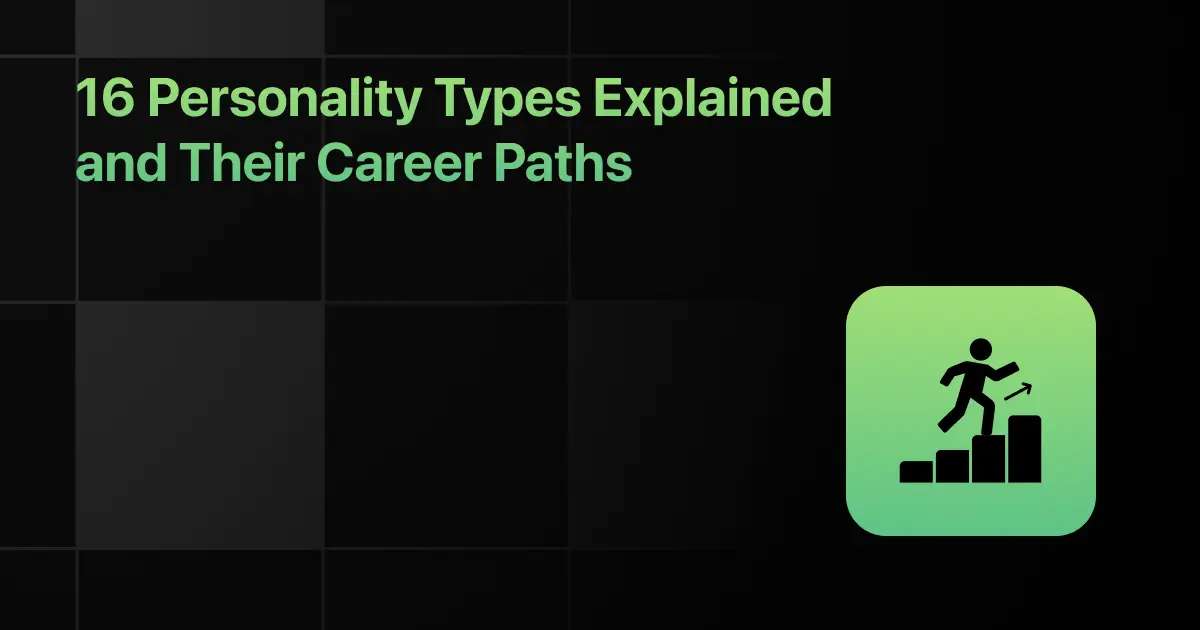

16 MBTI Personality Types Explained with Career Choices
Think about the people around you. You’ve probably noticed the planner in your group who always has a checklist. The idea …
Warning: Undefined variable $post_id in /var/www/wordpress/wp-content/themes/placementpreparation/template-parts/popup-zenlite.php on line 1050



